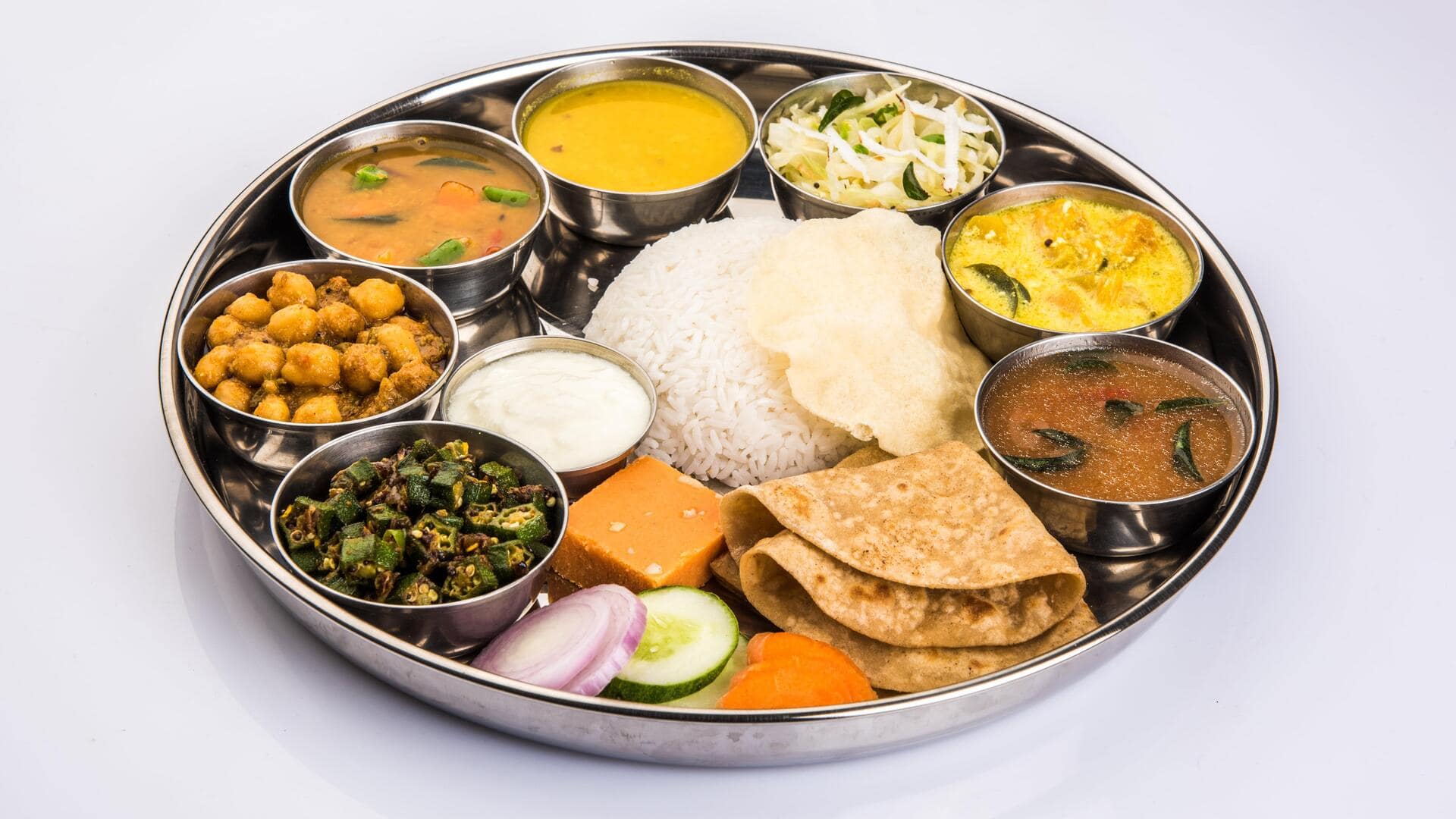
Why eating veg thali has gotten more expensive
What's the story
Vegetarian thalis became a bit more expensive this July. The cost has shot up by a third in just a month. Excessive rainfall in regions where tomatoes, onions, and chilies are cultivated has led to a rise in their costs. As a result, the typical household budget is feeling the impact. Let's understand the whys and hows of this sudden price surge.
Stats
Veg thali price jumped to Rs. 37.7 from Rs. 24.4
CRISIL's Roti Rice Rate (RRR) report for August reveals that a homecooked vegetarian thali's cost has surged from Rs. 24.4 to Rs. 37.7 over the past 17 months. Similarly, non-vegetarian thali costs have risen from Rs. 55.6 to Rs. 66.8. Notably, July saw the steepest surge, with vegetarian and non-vegetarian thali costs rising by 34% and 13% each compared to the prior month.
Tomatoes
Blame it on the tomatoes
The surge in thali costs can be largely attributed to the 233% spike in tomato prices, soaring from Rs. 33 in June to a staggering Rs. 110 per kg in July, as explained by CRISIL. They calculate the average expense of a thali by factoring in input prices from various regions across India. A veg thali includes roti, vegetables, rice, dal, yogurt, and salad.
Other veggies
How are other vegetables influencing the price surge?
The report highlights that the prices of onions and potatoes experienced a noticeable increase of 16% and 9% respectively from the previous month, adding to the overall price hike. While chili and cumin prices rose by 69% and 16% on a monthly basis, their smaller quantities in food preparation limited their impact on thali costs, as explained by CRISIL.
Non-veg thali
Non-vegetarian thali costs balanced by drop in chicken prices
For non-vegetarians, the rise in thali costs was balanced by a three to five percent drop in broiler chicken prices, which contributes half of the expenses, the report stated. Additionally, a two percent monthly decrease in vegetable oil prices provided some relief from the overall thali cost increase. The CRISIL report highlighted that this marks the third consecutive month of thali price inflation.